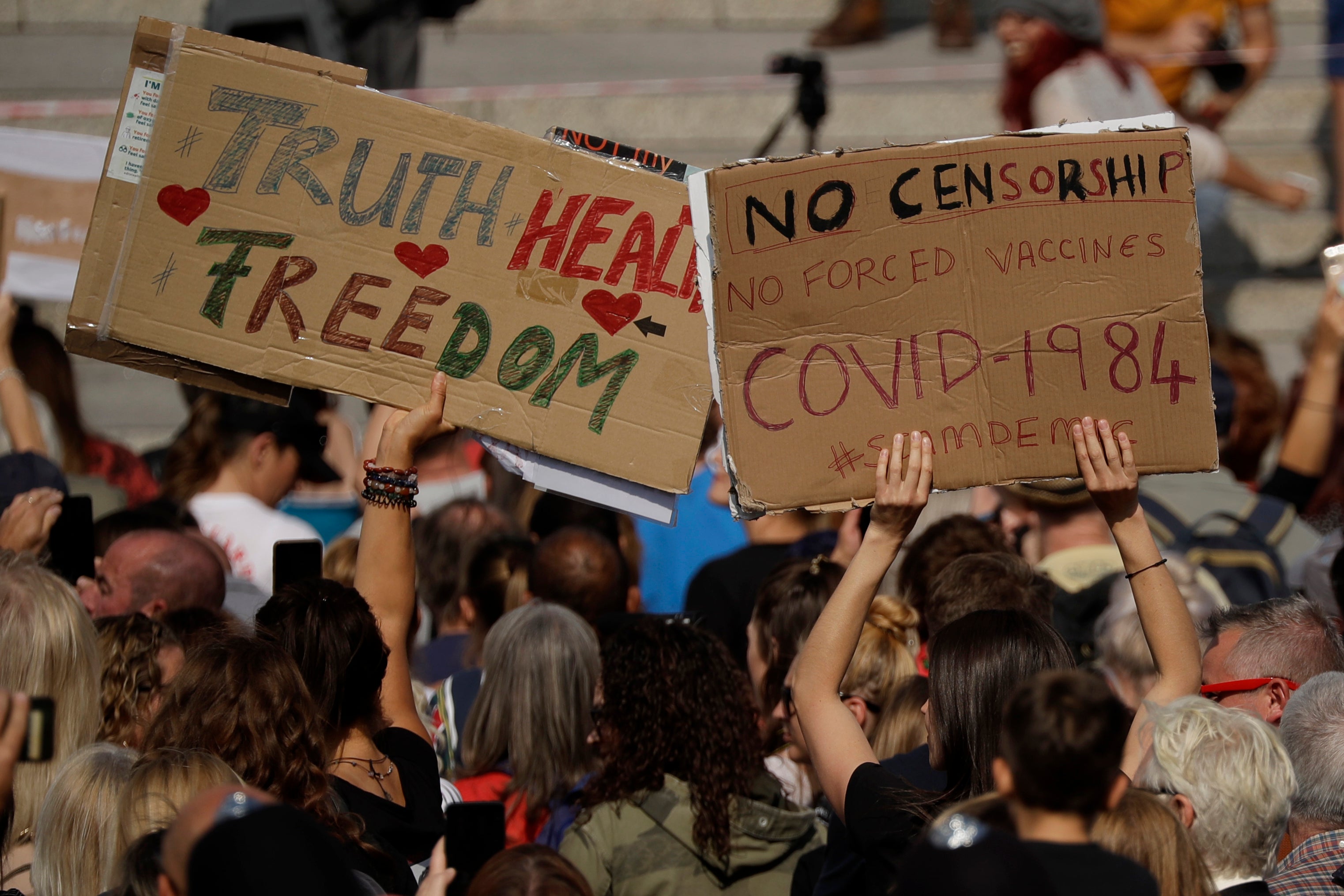Coronavirus conspiracy theories mean vaccine ‘might not be enough’ to end pandemic, scientists warn
A study shows a clear link between Covid-19 misinformation and ‘hesitancy’ to agree to take a future vaccine, reports Chris Baynes


The development of a Covid-19 vaccine “might not be enough” to end the pandemic as the growing popularity of conspiracy theories deters people from taking the jabs, scientists have warned.
An international study spanning five countries including the UK found a “clear link” between coronavirus misinformation and “hesitancy around any future vaccine”.
Governments and technology firms must take action over conspiracy theories if the eventual rollout of the jabs is to successfully eradicate the disease, researchers at the University of Cambridge warned.
Dr Sander van der Linden, director of Cambridge’s Social Decision-Making Lab and one of the authors on the study, said: "Certain misinformation claims are consistently seen as reliable by substantial sections of the public. We find a clear link between believing coronavirus conspiracies and hesitancy around any future vaccine.
"As well as flagging false claims, governments and technology companies should explore ways to increase digital media literacy in the population. Otherwise, developing a working vaccine might not be enough."
The study, published in Royal Society Open Science, examined beliefs and attitudes towards Covid-19 in the UK, US, Ireland, Mexico and Spain. It found that only a small increase in the perceived reliability of conspiracies equated to a disproportionately large drop in intention to get vaccinated.
While a large majority of people in all five nations judged misinformation to be unreliable, researchers found that certain conspiracy theories have taken root in significant portions of the population.
The conspiracy deemed most valid in each of the five countries was the discredited claim that Covid-19 was engineered in a laboratory in Wuhan, China. Between 22 and 23 per cent of respondents in the UK and US rated the theory "reliable". In Ireland this rose to 26 per cent, while in Mexico and Spain it jumped to 33 per cent and 37 per cent respectively.
A claim spread by anti-vaxxers that the pandemic is "part of a plot to enforce global vaccination" was deemed credible by 22 per cent of the Mexican population, along with 18 per cent in Ireland, Spain and the US, and 13 per cent of Britons.
The notorious 5G conspiracy theory — which alleges telecommunication towers are worsening Covid-19 symptoms or somehow spreading the virus — holds sway over smaller but still significant segments: 16 per cent in Mexico and in Spain, 12 per cent in Ireland, and 8 per cent in the US and UK, where the claim fuelled arson attacks on wireless towers earlier this year.
Researchers also identified "key predictors" for susceptibility to fake pandemic news.
People with good numeracy skills were "significantly and consistently” less likely to believe conspiracy theories in each of the five countries, the study found. Older people were also less likely to find misinformation credible in all of the nations except Mexico.
On average, an increase of one-seventh in a participant’s tendency to believe conspiracy theories was found to be associated with a drop of 23 per cent in the likelihood they will agree to get vaccinated.
"We all now deal with a deluge of statistics and R number interpretations. The fostering of numerical skills for sifting through online information could well be vital for curbing the 'infodemic' and promoting good public health behaviour,” said Dr van der Linden.
Protests against vaccines, masks, lockdowns and other measures to combat coronavirus have sprung up around the world during the pandemic, with thousands attending repeated rallies at London’s Trafalgar Square.
YouTube on Wednesday announced a ban on any videos promoting misinformation about Covid-19 vaccines. The website said it would remove any content featuring claims about vaccines which contradicted consensus from local health authorities or the World Health Organisation.
In its blog post, YouTube said it had taken down over 200,000 videos related to dangerous or misleading Covid-19 information since early February.


Join our commenting forum
Join thought-provoking conversations, follow other Independent readers and see their replies
Comments